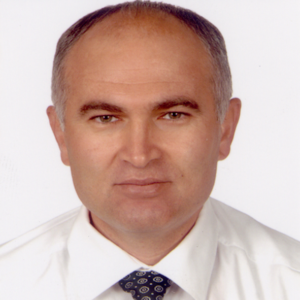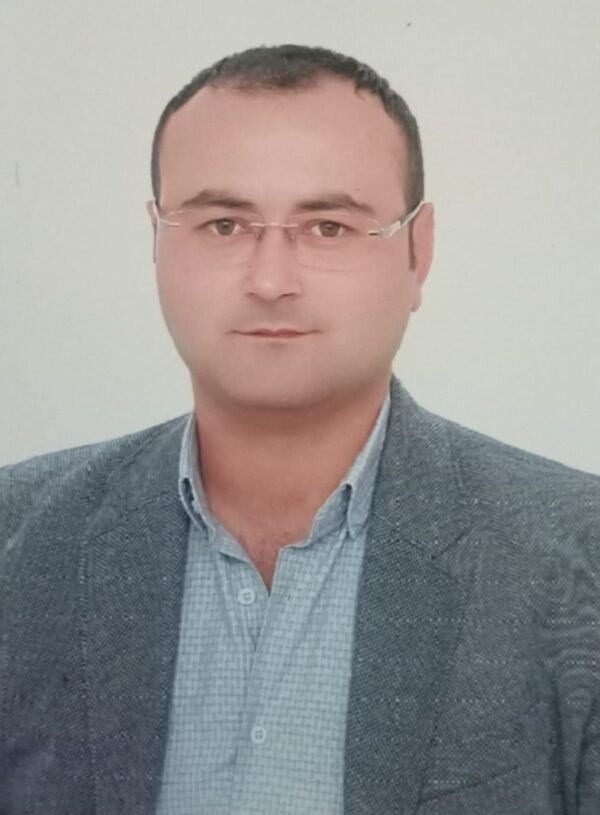Isparta University of Applied Sciences
Background and experience

Agricultural Machinery and Technologies Engineering (AMTE), which is the department of Faculty of Agriculture, Isparta University of Applied Science has missions of conducting both educational programs and applied research on agriculture within the sustainability direction prioritized nationally and globally. The accomplishment of this basic goal is warranted by the scientific track record of the academic stuff and by the possibility of accessing additional top-notch research facilities available in AMTE focusing primarily on providing maximal scientific complementarity to the current professional skills of the researcher in AMTE while maintaining a solid link to their scientific background on agricultural mechanization, specifically agricultural waste management such as composting, biogas technologies, biomass and waste volarization. The priority area of advanced research are waste management in agriculture, composting engineering and technologies, biogas technologies and applications, optimization of composting process, modelling and simulation of composting process, composting technologies in rural areas, composting and compost applications, applications of compost as bio stimulants. AMTE has graduate program having 16 Msc and 8 PhD. A total staff of 12 out of which 10 academic staff, 83% hold PhD degrees. AMTE received the research grants mostly from national resources between the year of 2002 between 2020 such as Turkish Scientific and Research Council (TÜBİTAK), Turkish Ministry of Science - Industry and Technology, and Turkish Small and Medium Enterprises Development Organization (KOSGEB) and an EU project.
These included Turkish Ministry of Science, Industry and Technology (Techno-Entrepreneurship projects with undergraduate and graduate students (16 projects), Industrial Thesis), Turkish Scientific and Research Council (Technology and Innovation Support Programs Projects, Research and Development Projects (28 projects), Research Projects Support Program for University Students (25 projects), university coordinated projects (46 projects) and a LIFE project funded by FP6 on biomass (Exploitation of Agricultural Residues in Turkey. LIFE-03.TCY/TR/000061). The AMTE scientist have an extensive expertise in composting (optimization of composting process, modelling and simulation of composting process, composting technologies in rural areas, composting and compost applications, applications of compost as bio stimulants). Recently, AMTE scientist conducting a project on composting named as “Full Support from Women Producing Compost Fertilizer to Agriculture and Recycling” by Special Mersin Provincial Project for Women in Turkey (20,000€). Additionally, the AMTE scientist carrying out a project on “Animal and Plant Origin Fertilizer Processing, Packaging and Storage” Ministry of Agriculture and Forest by Support program for rural development investments. AMTE scientist conducted a research “Developing of Input Production Methods for Utilization in Organic Plant Production - Determination of operational parameters for production of compost from rose oil and olive oil processing wastes and enrichment of compost from rose oil processing wastes in organic farming), the budget of which was 1,94 million $ in April 2013. The project involved composting of rose oil and olive oil processing wastes and enrichment of rose oil processing wastes. AMTE is experienced in organizing Conferences, Summer schools and Training courses, science dissemination public events and networking with various stakeholders.
Composter Project Team of Isparta University of Applied Sciences

Prof. Dr. Kamil Ekinci
He is a full professor at Faculty of Agriculture Isparta University of Applied Sciences. Ekinci received his PhD at the Department of Food Agricultural and Biological Engineering in 2001 from the Ohio State University, Columbus/Ohio, USA. He is working on composting process (process management, modelling and simulation) using different systems (reactor, aerated static pile, turned windrow, rotary drum) for compost, vermicompost, and mushroom compost. He is also conducting researches on the applications of wide variety composts obtained from animal manure (cattle and dairy, sheep, goat), poultry, plant-based materials (open market wastes, rose-oil processing solid wastes, fruit juice processing wastes, alkaloid processing wastes, etc.) for vegetable and fruit production. He is regularly presenting his work at international scientific conferences, he has organized national scientific conferences (such as 25th National Mechanization congress, 1th National Compost and Biogas Workshop), summer schools and participated in numerous national and international projects. He conducted a research “Developing of Input Production Methods for Utilization in Organic Plant Production – Determination of operational parameters for production of compost from rose oil and olive oil processing wastes and enrichment of compost from rose oil processing wastes in organic farming), the budget of which was 1,94 million $ in April 2013. The project involved composting of rose oil and olive oil processing wastes and enrichment of rose oil processing wastes. He also conducted a research titled “Production of Biogas from Animal Manure and Plant Based Material and its Usage in Integrated Energy Systems” funded by The Scientific & Technological Council of Turkey as Principal Investigator. In this project “He worked on the simulation and modelling of anaerobic digestion system using ADM1 and CFD models. The major outcome of this project was the first biogas plant built by Turkish Engineering concept, which was 500 kW. He worked as researcher “Exploitation of Agricultural Residues in Turkey. LIFE-03.TCY/TR/000061.

Barbaros Salih Kumbul

Emine Ekinci
An Agricultural Engineer, MSc. Emine Ekinci earned a M.Sc. degree in the Department of Horticulture, Suleyman Demirel University on Effects of Different Crop Load Levels on Vegetative Growth, Fruit Quality of Apple Trees. She is a PhD student at the Department of Soil Science and Plant Nutrition, Isparta University of Applied Science. The main research area is the development of effective microorganisms and application of effective microorganisms to composting, specifically bokashi composting, organic farming, and controlled production protocol (Europgap). In addition, Emine Ekinci has some experience in public relations of Isparta University of Applied Science since 2017. She has been involved in a national project. Emine Ekinci participated in training courses on bokashi composting, organic farming, and controlled production protocol. She actively collaborates with national scientists.
